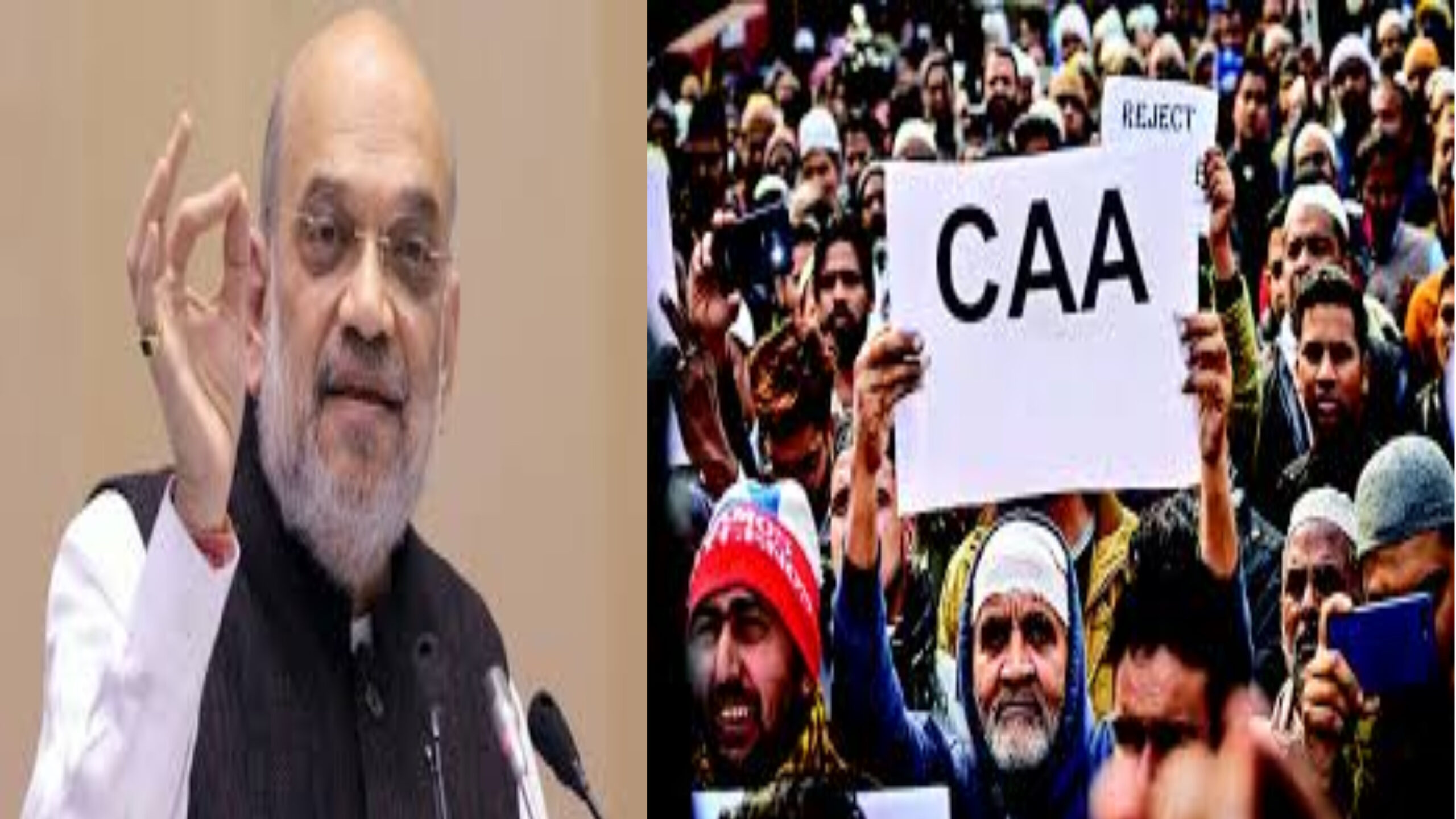The implementation of the Citizenship Amendment Act (CAA) before the forthcoming Lok Sabha elections was firmly asserted by Union Home Minister Amit Shah during an address at the ET Now-Global Business Summit in Delhi. Passed by the Indian Parliament on December 11, 2019, the CAA has been a point of contention and debate across the nation. Shah’s commitment to enforcing the act prior to the electoral process underscores its significance within the political agenda of the Bharatiya Janata Party (BJP).
Shah emphasized that the essence of the CAA is to grant, not revoke, citizenship. He addressed concerns and misunderstandings surrounding the act, particularly within minority communities.
“The Citizenship Amendment Act represents a government effort to grant citizenship and will be implemented prior to the elections.” It’s crucial to dispel any misconceptions regarding this. The act is not designed to withdraw anyone’s citizenship. Specifically, it aims to provide sanctuary and citizenship to those persecuted in neighboring countries like Bangladesh and Pakistan,” Shah elucidated at the summit.
The conversation around the CAA has been mired in controversy and misinformation, leading to widespread protests and unrest in various parts of the country. The act seeks to offer citizenship to persecuted minorities from Bangladesh, Pakistan, and Afghanistan—excluding Muslims and other groups—who entered India on or before December 31, 2014, due to religious persecution or the fear thereof. This exclusion has sparked debates on the secular fabric of India, with critics arguing that it discriminates on the basis of religion.
Shah also critiqued the Congress party for its current stance on the CAA, contrasting it with historical promises made to refugees during the partition.
“Congress previously committed to embracing refugees who were persecuted in the newly established countries, promising to provide them with Indian citizenship.”Today, they retract these promises,” Shah remarked, highlighting a perceived inconsistency in Congress’s approach to refugee citizenship.
The backdrop to the CAA’s introduction and subsequent protests is deeply intertwined with India’s complex history and socio-political landscape. Initially, the protests ignited in Assam on December 4, 2019, rapidly spreading across the nation following the act’s passage. The dissent against the CAA was not just confined to Assam but echoed throughout India, with major cities and towns witnessing widespread mobilizations. Critics of the CAA argue that it undermines India’s secular constitution by making religion a criterion for citizenship. The protests were marked by instances of violence, significant arrests, and unfortunately, loss of lives, reflecting the deep divisions and strong emotions the act has evoked.
Furthermore, the assurance of CAA’s implementation has been a pivotal aspect of the BJP’s electoral strategy, indicating the political weight the act holds within the party’s vision for India. This stance has not been without opposition, as evidenced by statements from political leaders like M.K. Stalin of the Dravida Munnetra Kazhagam (DMK), who has vowed never to allow the implementation of the CAA in Tamil Nadu.
The controversy surrounding the CAA underscores a broader debate on citizenship, nationalism, and secularism in India. The act’s proponents argue it provides much-needed refuge to persecuted minorities, fulfilling a moral and historical obligation. In contrast, opponents view it as a departure from India’s secular traditions, potentially paving the way for further exclusionary policies.
As the Lok Sabha elections approach, the CAA remains a contentious issue, reflecting the polarized perspectives on nationalism, secularism, and the very essence of Indian democracy. The BJP’s commitment to implementing the CAA, as articulated by Amit Shah, sets the stage for further political debates and discussions in the lead-up to the elections. The act’s implementation and its repercussions on India’s socio-political fabric will undoubtedly continue to be a significant point of discussion in the nation’s ongoing dialogue about identity, belonging, and the principles of democracy.
The discourse surrounding the Citizenship Amendment Act (CAA) extends beyond legislative measures to touch the very core of India’s identity as a diverse and secular democracy. As the nation stands at the crossroads of historical legacies and future aspirations, the implementation of the CAA before the Lok Sabha elections marks a critical juncture in India’s democratic journey. It raises profound questions about the balance between providing refuge and maintaining the secular ethos enshrined in the constitution. The unfolding of these events will not only shape the political landscape but also reflect the collective conscience of India’s populace, navigating through the complexities of citizenship, refuge, and the enduring values of equality and secularism.

